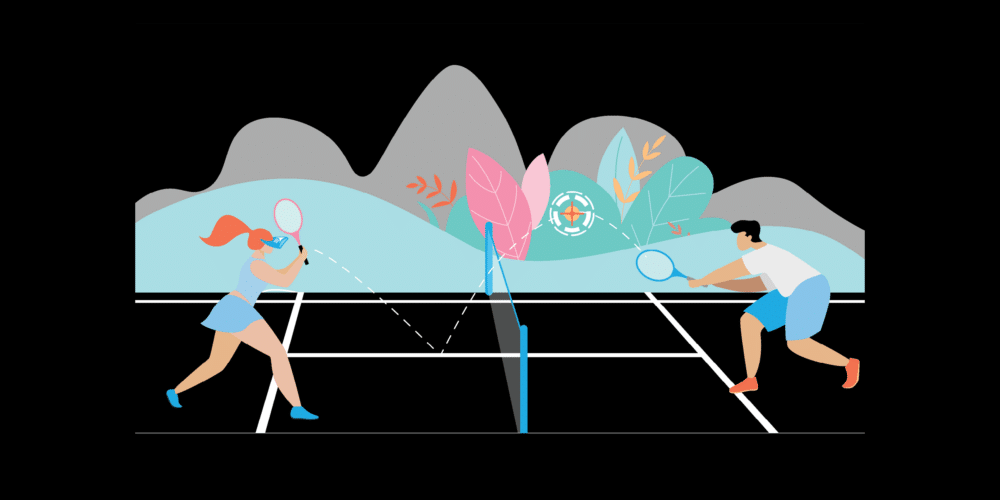This article originally appeared in The Tennessean.
Double fault. Three times in a row.
I would say it just wasn’t my day, but that’s not entirely true.
As part of my quest to stay in shape and keep connected to friends during the dark and lonely days of the pandemic, I decided to start playing tennis. Relatively safe being outdoors and always over 6 feet away from my opponent—it seemed like a good way to exercise and socialize without getting sick.
I played tennis as a kid. But after losing every match I ever played as a member of my high school team, I threw my racquet in the closet and vowed to never play again.
But the pandemic did strange things to all of us.
With the help of YouTube and some tips from friends (the same ones who destroyed me back in high school), I was back on the court trying to become a better player.
Tennis is hard, as anyone who’s played knows.
It takes proper form, endurance, strength, and speed. When I picked up my racquet again after so many years, I quickly realized I had none of those. What little of each I had when I was younger felt just as out of reach as my friend’s backhand was whenever it flew past me.
But I persisted. I practiced serves, forehands, backhands, lobs, volleys every week.
After a couple of years of playing I can proudly say that I am now…inconsistent!
For me, being inconsistent at tennis is an improvement (I used to be consistently terrible.) I will serve an ace and then 25 seconds later I will serve straight into the net. I can hit two forehands in a row that go over the fence, followed by two in a row that go straight down the line.
So, I’ve discovered that the key to improving is to simply learn how to be more consistent.
It’s the same at work. Thirty years into my career, I have a decent knowledge of what to do, but consistently making the right decisions day in and day out is still hard.
As it turns out, being inconsistent, whether at tennis or work, is not uncommon. Roger Federer and Rafael Nadal have good and bad points throughout every match. And Bill Gates and Warren Buffett make some good decisions and some bad ones—just like me.
Inconsistency is simply part of the game.
So, how best to deal with the ups and downs that we all face?
In tennis, there’s a rule that you only have 25 seconds between points. Win or lose, you must be ready to serve or return in less than half a minute. And given that inconsistency at some level is impossible to avoid, the best players are the ones who hit the ball out of bounds and come right back on the next point with a winner.
In the workplace—especially for those of us who are not professional tennis players—dealing with inconsistency is even more important.
Some say the key is to have a short memory. Make a mistake and move on to the next challenge.
But I have found the opposite is true. When you make a mistake at work, remember it but don’t dwell on it. The goal is to learn but not let the emotions that come with a bad decision carry over to the next task that comes your way.
Just like in tennis—this mental game is easier said than done. But accepting an error, learning from it, and the quickly getting over it can help individuals and entire companies get more long-term wins.
JJ Rosen is the founder of Atiba, a Nashville custom software development firm and IT support company. Visit Atiba.com for more info.
